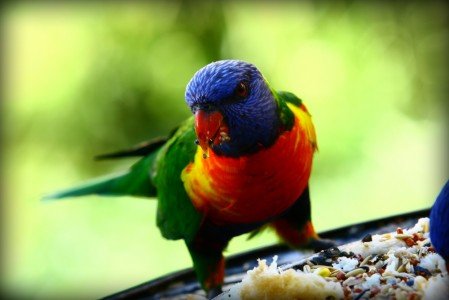
Wildlife trade watchdog Traffic has found that the Solomon Islands has become a hub for “laundering” wild birds into the global captive-bred bird trade.
Thousands of parrots, cockatoos and other exotic birds have been exported over the last 10 years, Traffic has reported.
But officials say there are no major captive breeding units in the islands.
The Solomons recently joined Convention on International Trade in Endangered Species (CITES), the global wildlife trade convention, which sets different conditions for trading captive-bred and wild animals.
“Declaring exported birds as being captive-bred has all the hallmarks of a scam to get around international trade regulations,” said Chris Shepherd, Traffic’s deputy director for Southeast Asia.

Some of the 35 bird species exported from the Solomons are on the internationally recognized Red List of Threatened Species.
They include the Critically Endangered yellow-crested cockatoo (Cacatua sulphurea), and the chattering lory (Lorius garrulus) and blue bird of paradise (Paradisaea rudolphi), which are both categorized as Vulnerable.
Under CITES all trade in the yellow-crested cockatoo is banned.
For the others, exports of wild-caught birds are strictly regulated.
Using records from importing countries, Traffic investigators calculated that about 54,000 birds were exported from the Solomons in the period 2000-2010.
More than 40,000 of these were declared as captive-bred.
Most belong to species native to the Solomons, but more than 13,000 came from non-native species, mainly originating in Indonesia and Papua New Guinea.
But Traffic could find no records of these species being imported into the Solomons, either for re-export or to begin a captive breeding programme.
An official from the government’s Environment Conservation Division told investigators: “There are no breeding facilities, only some confusion with storing facilities.
“Most of the exported birds were captured and kept in holding sites only.”
The main destinations for the birds were Malaysia and Singapore.
Malaysia recently suspended imports from the Solomon Islands after concerns were raised. Traffic is urging the Singapore government to do the same.
It also recommends that CITES should investigate the situation with authorities in the Solomon Islands, and consider a trade suspension if no action is taken.
Traffic is jointly supported by the International Union for the Conservation of Nature (IUCN) and WWF, and works with CITES on various issues.